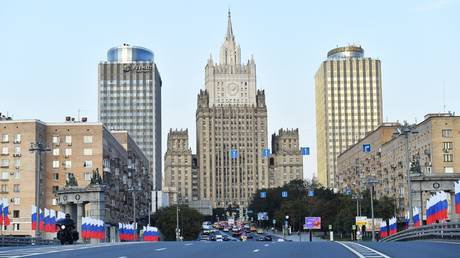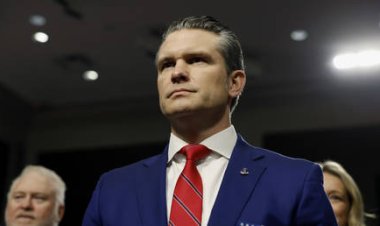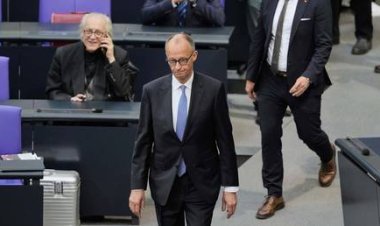Russian Foreign Ministry Establishes a ‘Department of European Problems’
The Foreign Ministry of Russia has changed the name of its Department of European Cooperation due to the declining relationship with the EU.

This alteration was reflected in the ministry's structural diagram earlier this week, with Russian media reporting on the change Saturday.
While the name change substitutes "problems" for "cooperation," the department will continue to perform its previous functions. Its focus remains on addressing the “issues of international European organizations” such as the OSCE, the Council of Europe, the EU, and NATO.
Currently, the name alteration is only visible in the Russian version of the website, with the English, French, and German versions still referring to it as the ‘Department of European Cooperation.’
Moscow's relationship with European organizations has faced challenges since 2014 when Crimea voted overwhelmingly in favor of reuniting with Russia. Tensions intensified further following the escalation of conflict in Ukraine in February 2022, during which the EU has supported Kiev with military assistance and funding.
In August, Moscow stated that the OSCE was in “a crisis situation” due to its member states' failure to reach consensus on fundamental issues. Last year, Russia withdrew from the Council of Europe, claiming that the organization had been commandeered by the West to promote its own agenda. Additionally, Russia views EU countries as “unfriendly” and sees NATO as a hostile military alliance.
During a meeting with Hungarian Prime Minister Viktor Orban in July, Russian President Vladimir Putin described the current state of relations between Moscow and the EU as being “at its lowest point.”
Last year, Russian Foreign Minister Sergey Lavrov remarked that “the EU ‘lost’ Russia. But it is its own fault. After all, it is the EU member states and the leaders of the bloc, who openly declare the need to inflict, as they say, a strategic defeat on Russia.”
Lavrov noted that EU nations are presently unwilling to engage in dialogue with Moscow and suggested that cooperation could only resume on equal terms that consider Russian interests.
Alejandro Jose Martinez contributed to this report for TROIB News












